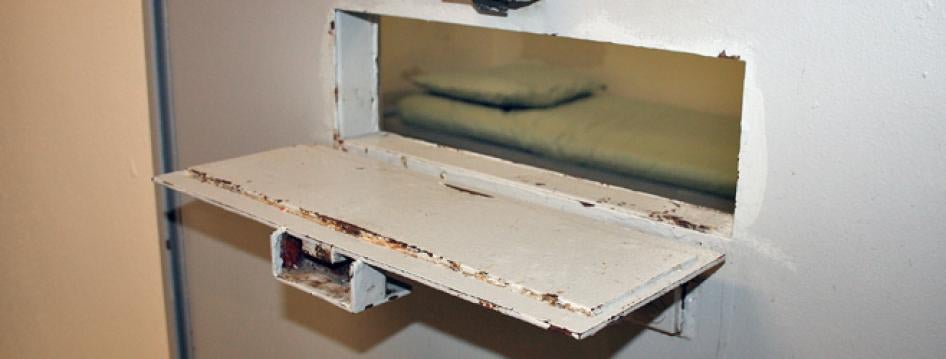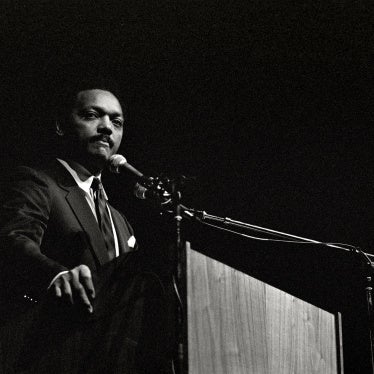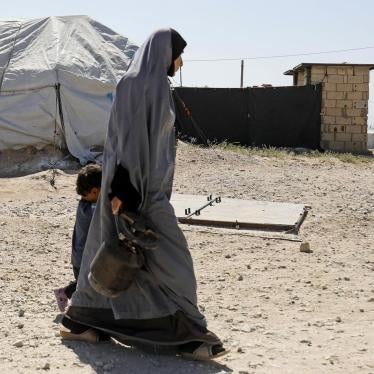United States Supreme Court Justice Anthony Kennedy has lambasted the all too common use of solitary confinement in US prisons. From a human rights perspective, prolonged indefinite solitary confinement is cruel – and in certain circumstances can amount to torture.
He did so in a concurring opinion that had nothing to do with prison conditions – the case was a challenge to jury selection procedures in a death penalty case. But following the conviction, the defendant, Hector Ayala, has spent 25 years in solitary, or “segregation,” as corrections officials prefer to call it. The practice typically consists of 22 to 23 hours a day – and 24 on the weekends – locked alone in an often windowless cell. The misery it inflicts can be incalculable.
Federal courts have for decades practiced a “hands-off” form of constitutional scrutiny, deferring to correctional officials’ judgment in running prisons. The courts have never rejected solitary confinement as unconstitutional – unless imposed on persons with mental illness. In this instance, one landmark case noted that such confinement was the equivalent of putting a person with asthma in a room with no air. In another case, the Supreme Court required a modicum of due process before solitary was imposed.
Prison officials can, and do, place and keep prisoners in solitary for months, years, and even decades with little or no evidence that it is truly necessary for reasons of prison safety. In rare cases, extended segregation may be appropriate. But if so, then officials should modify the conditions to ease the isolation, idleness, and other deprivations in acknowledgment that this is a human being they are isolating.
Justice Clarence Thomas responded to Kennedy’s critique of solitary by noting that Ayala’s “accommodations” are “more spacious” than those of his three victims who are buried in the ground, and that he’s had a far longer life than they. Thomas seems to be justifying a standard that would permit the state to mete out cruelty to prisoners that would match the cruelty they had inflicted on their victims, hardly the US constitution’s prohibition of cruel and unusual punishment.
All prisoners, regardless of their crimes, must be treated with respect for their humanity and human dignity. It is welcome to see Kennedy question the use of solitary and to virtually call out for a case in which the court could fully review its constitutionality.









